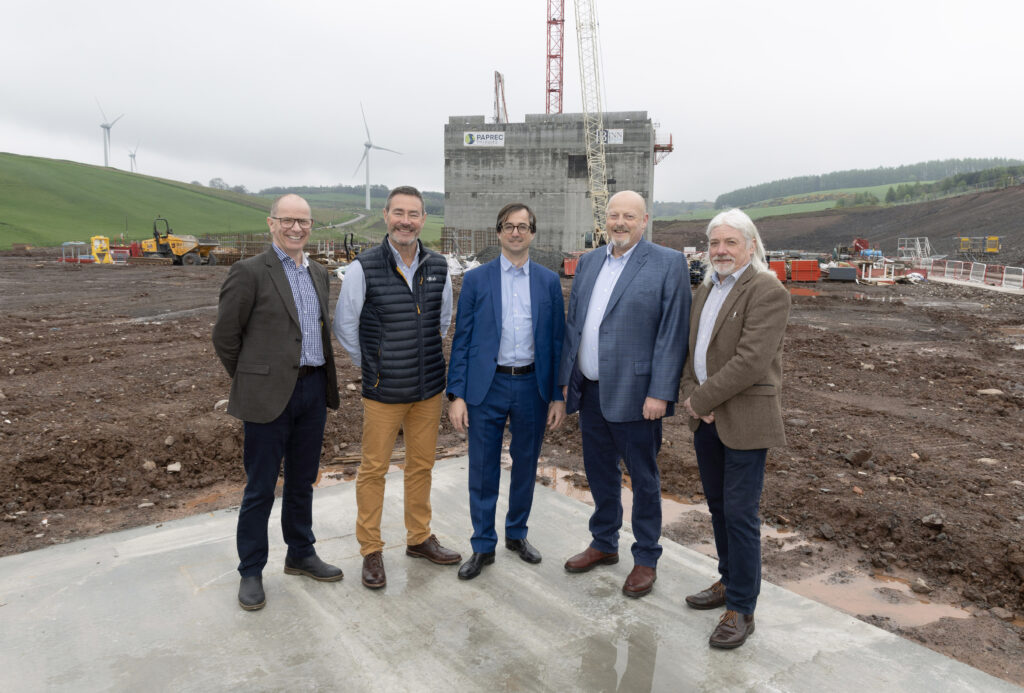In a statement issued today (December 14), ADBA criticised the Governments gas strategy, which was unveiled alongside Chancellor George Osbornes Autumn Statement last week (5 December).
The strategy includes tax incentives for shale production and support for the construction of more gas-fired power stations, but ADBA said the Government should be concentrating on anaerobic digestion and other more green forms of unconventional gas energy, such as AD.
AD plants process food and organic waste, which can generate heat and renewable energy for the national grid and produce bio fertiliser for farmland. Since the launch of the Governments AD strategy and action plan in June 2011, AD capacity in the UK has almost doubled (see letsrecycle.com story here).
ADBAs criticism of the Government also comes after Staffordshire energy firm Cuadrilla was given the go-ahead by energy secretary Ed Davey to resume fracking in Lancashire yesterday. The firm was forced to stop fracking two years ago following two tremors in Blackpool.
Reacting to the fracking decision, ADBA chief executive Charlotte Morton said: It is criminal that the debate about unconventional gas risks excludes the best source we have: biogas from anaerobic digestion. Upgraded to biomethane, it is already replacing fossil gas in the grid, and has the potential to meet 10% of the UKs domestic gas demand. It is ultra-low carbon and has a range of positive environmental impacts, in the process treating food waste and supporting farming.
She added: The government should be putting green gas first, by giving long term policy certainty to investors and developers, and ensuring that policies such as local authority waste collections make as much organic material available for digestion as possible.
Speakers at the fourth annual ADBA conference in Westminster on Wednesday (12 December) also criticised the Governments gas policy and its decision to give the green light to fracking.
Jonathon Porritt, founder director of non-profit sustainability campaign group Forum for the Future, said the Governments lack of green gas in its gas strategy was staggering, adding: AD needs the consistency across government that the Office for Unconventional Gas is giving for shale.
Steve Wallace, director of sustainable business organisation Aldersgate Group, also called biogas from anaerobic digestion to be a revolution in gas supply.
Autumn Statement
Last week (5 December), the Renewable Energy Association (REA) also described the Chancellors Autumn Statement with regards to gas policy as disappointing.
Related Links
REA chairman, Martin Wright, said: What we needed today was an assurance that gas would play an important short to medium term role, supporting renewables in the transition to a low carbon energy future. Instead gas has been placed centre-stage.
He added: The UK has some of the best renewable resources in the world, which are totally sustainable and which offer stable low-cost energy in future – we should prioritise exploiting those.
Head of biogas at REA, David Collins, said: It is disappointing to see no mention of renewable gas in the Governments Gas Strategy. Today represents a missed opportunity to celebrate the genuinely good work the industry and Government are doing on the ground to overcome the barriers to injection of biomethane into the gas grid.
National Grid estimates that biomethane, if exploited fully, could provide around 25% of the UKs residential gas supply. Renewable gas can make a vital contribution to boosting the domestic security of our gas grid. It also has excellent emissions and landfill displacement properties and provides tremendous economic opportunities for farmers and small businesses.










Subscribe for free